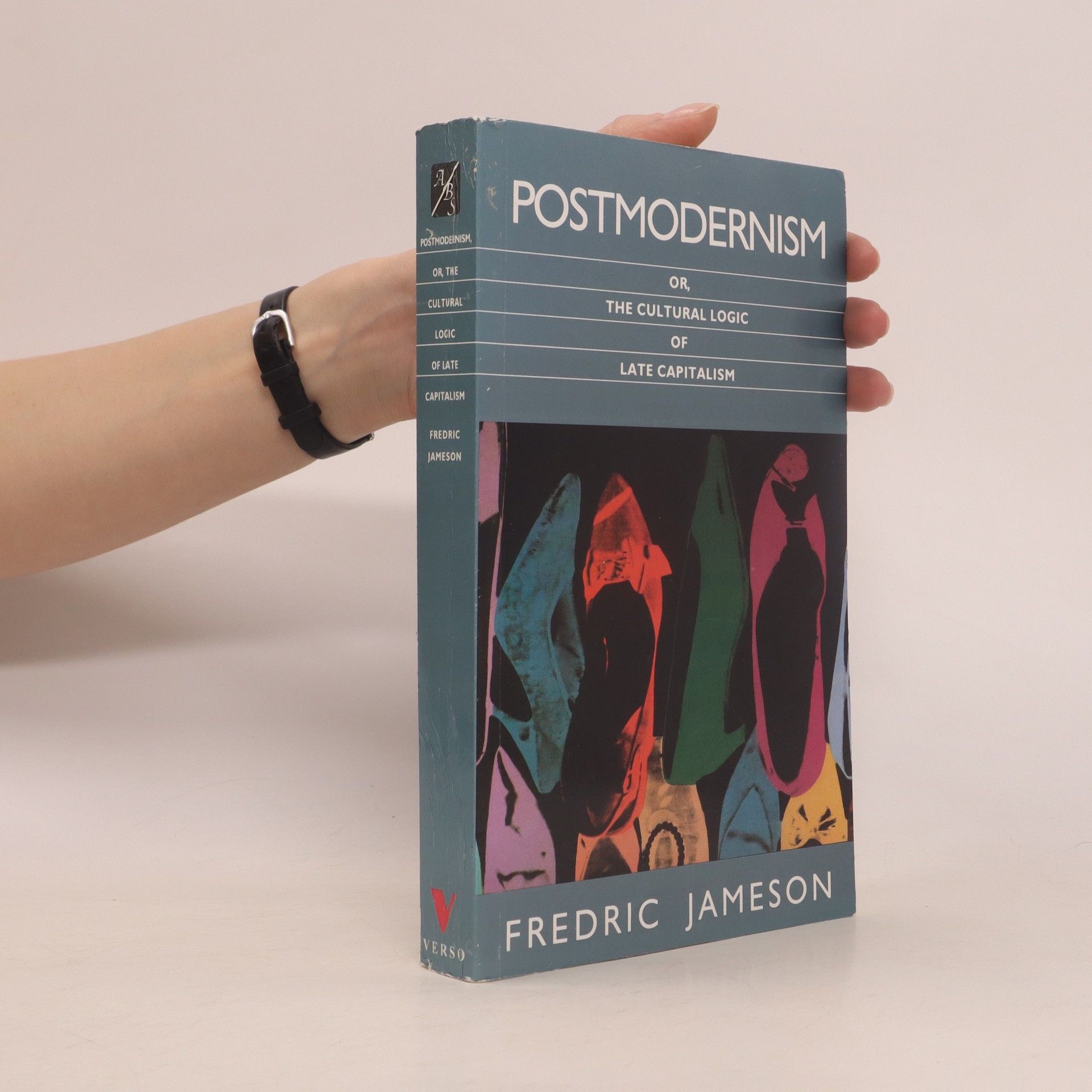Now in paperback, Fredric Jameson’s most wide-ranging work seeks to crystalize a definition of ”postmodernism”. Jameson’s inquiry looks at the postmodern across a wide landscape, from “high” art to “low” from market ideology to architecture, from painting to “punk” film, from video art to literature.
Fredric Jameson Knihy
Fredric Jameson je americký literárny kritik a marxistický politický teoretik, ktorý je známy svojou hlbokou analýzou súčasných kultúrnych trendov. Jeho dielo sa zameriava na to, ako sú kultúrne javy ovplyvňované tlakom organizovaného kapitalizmu, pričom postmodernizmus opísal ako priestorovú logiku kultúry. Jameson skúma, ako sú tieto javy formované štruktúrami neskorého kapitalizmu a ako odrážajú politické a spoločenské sily svojej doby. Jeho prístup ponúka prenikavý pohľad na vzťah medzi kultúrou, ideológiou a ekonomickou mocou.







Mimesis, Expression, Construction
- 750 stránok
- 27 hodin čítania
Mimesis, Expression, Construction brings Fredric Jameson's famous Duke University seminar on Adorno's AestheticTheory into print for the first time.
Valences of the Dialectic
- 640 stránok
- 23 hodin čítania
This work offers an in-depth examination of dialectical philosophy, highlighting its significance in cultural criticism. The author, a leading figure in the field, explores the intricate relationships between ideas and societal structures, providing insights into how dialectics shapes our understanding of culture. Through rigorous analysis, the book delves into historical and contemporary applications of dialectical thought, making it an essential read for those interested in philosophy and cultural studies.
The book offers insightful lectures on prominent figures in French theory, showcasing the perspectives of a leading Marxist critic from America. It delves into the intellectual contributions and influences of these theorists, providing a critical analysis that connects their ideas to contemporary thought. Through these explorations, the author illuminates the complexities and nuances of French theory, making it accessible to a broader audience while engaging with its revolutionary implications.
The Benjamin files
- 288 stránok
- 11 hodin čítania
"A comprehensive new reading of Walter Benjamin's major works, as well as a great number of his less well-known publications, from one of America's foremost cultural and literary critics"-- Provided by publisher
Cultural critic Fredric Jameson, renowned for his incisive studies of the passage of modernism to postmodernism, returns to the movement that dramatically broke with all tradition in search of progress for the first time since his acclaimed A Singular Modernity . The Modernist Papers is a tour de froce of anlysis and criticism, in which Jameson brings his dynamic and acute thought to bear on the modernist literature of the nineteenth and twentieth centuries. Jameson discusses modernist poetics, including intensive discussions of the work of Baudelaire, Rimbaud, Mallarmé, Wallace Stevens, Joyce, Proust, and Thomas Mann. He explores the peculiarties of the American literary field, taking in William Carlos Williams and the American epic, and examines the language theories of Gertrude Stein. Refusing to see modernism as simply a Western phenomenon he also pays close attention to its Japanese expression; while the complexities of a late modernist representation of twentieth-century politics are articulated in a concluding section on Peter Weiss’s novel The Aesthetics of Resistance. Challenging our previous understanding of the literature of this pperiod, this monumental work will come to be regarded as the classic study of modernism.
Allegory and Ideology
- 384 stránok
- 14 hodin čítania
"This major new work by Fredric Jameson is not a book about 'method,' but it does propose a dialectic capable of holding together in one breath the heterogeneities that reflect our biological individualities, our submersion in collective history and class struggle, and our alienation to a disembodied new world of information and abstraction. Eschewing the arid secularities of philosophy, Walter Benjamin once recommended the alternative of the rich figurality of an older theology; in that spirit we here return to the antiquated Ptolemaic systems of ancient allegory and its multiple levels (a proposal first sketched out in The Political Unconscious); it is tested against the epic complexities of the overtly allegorical works of Dante, Spenser and the Goethe of Faust II, as well as symphonic form in music, and the structure of the novel, postmodern as well as Third World: about which a notorious essay on National Allegory is here reprinted with a theoretical commentary; and an allegorical history of emotion is meanwhile rehearsed from its contemporary, geopolitical context"-- Provided by publisher
Ideologies of Theory
- 704 stránok
- 25 hodin čítania
This classic collection showcases Fredric Jameson's influential essays that delve into the intersections of culture, politics, and ideology. Renowned for his critical analysis of postmodernism, Jameson explores how cultural artifacts reflect and shape societal structures. His thought-provoking insights challenge readers to reconsider the relationship between art and the socio-economic conditions of their time, making this work a vital contribution to contemporary cultural theory.
Signatures of the Visible
- 360 stránok
- 13 hodin čítania
Written by the author of Postmodernism: The Cultural Logic of Late Capitalism, this book explores film and film culture through the relationship between the imaginative world on screen and the historical world onto which it is projected.
The Political Unconscious: Narrative as a Socially Symbolic Act
- 320 stránok
- 12 hodin čítania
